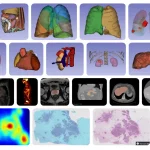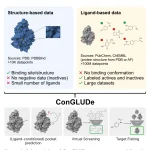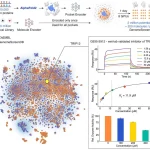It may be possible for clinicians to use artificial intelligence to identify patients who are most prone to experiencing harmful side effects when taking some common antidepressants, antihistamines, and bladder medications.
In a study published in Age and Ageing, researchers from the Universities of Exeter and Kent and Medway NHS and Social Care Partnership Trust assessed a new tool for predicting which medicines will cause adverse anticholinergic effects. The risks associated with these complications are often associated with drugs, both prescription and over-the-counter, that affect the brain by inhibiting a key neurotransmitter, acetylcholine. Many medicines have a strong anticholinergic effect, including bladder medications, antidepressants, and medications for Parkinson’s disease and stomach problems. A large number of older people take these medications.
There is an increase in the use of anticholinergic medicines globally. The use of anticholinergic medications in England alone increased from 5.7 to 9.9% between 1990 and 2001.
There are many side effects associated with anticholinergic drugs, including confusion, blurry vision, dizziness, or falls, as well as cognitive decline. The effects of anticholinergic drugs may also increase the risk of falling and may be associated with an increase in mortality rates. The use of these products over a long period of time has also been linked to a higher risk for dementia.
It won’t be difficult for clinicians to calculate the harmful effects of medicines now. To identify medications with anticholinergic effects, the team created the International Anticholinergic Cognitive Burden Tool (IACT), which uses natural language processing and chemical structure analysis.
The tool ‘IACT’ is the first to integrate machine learning into the process, so the website is automatically updated to provide access to it. In order to assess anticholinergic burden, a score is assigned based on reported adverse events and aligned closely with the chemical structure of the drug being considered for prescription, resulting in the most accurate and up-to-date scoring system ever developed. Finally, by further research and modeling based on real-world patient data, this tool may be able to support prescribing, reducing the risks associated with common medications.
According to Professor Chris Fox at the University of Exeter, one of the study authors, medicines with anticholinergic effects can have potentially harmful side effects, such as falls and confusion, which are preventable. It is urgently required to reduce the harmful side effects as hospitalizations and deaths can occur. This new tool, IACT, offers a promising route toward personalized medicine, which ensures the right person gets the proper treatment while avoiding unwanted anticholinergic effects.
A total of 110 health professionals, including pharmacists and prescribing nurses, were surveyed in the study. When given the option, 85 percent of the respondents said they would use a tool to assess the risk of anticholinergic side effects. To improve the tool further, the team also collected usability feedback.
This tool is the first to use innovative artificial intelligence technology in measures of anticholinergic burden – once further research is conducted, the tool will hopefully assist pharmacists and prescribing health professionals in finding the best treatment for patients, expressed Dr. Saber Sami at the University of East Anglia.
According to Professor Ian Maidment from Aston University, who has over 20 years of experience in this area, the side effects of anticholinergic medications can be very debilitating for patients. There is a need for better methods of assessing these side effects.
Final thoughts
By utilizing machine learning systems, the anticholinergic burden could be quantified in order to improve patient outcomes. Clinicians can use the IACT tool to make clinical decisions around prescribing by providing an easy-to-access standardized scoring system.
Story Sources: Reference Paper | Reference Article
Learn More:
Top Bioinformatics Books ↗
Learn more to get deeper insights into the field of bioinformatics.
Top Free Online Bioinformatics Courses ↗
Freely available courses to learn each and every aspect of bioinformatics.
Latest Bioinformatics Breakthroughs ↗
Stay updated with the latest discoveries in the field of bioinformatics.
Dr. Tamanna Anwar is a Scientist and Co-founder of the Centre of Bioinformatics Research and Technology (CBIRT). She is a passionate bioinformatics scientist and a visionary entrepreneur. Dr. Tamanna has worked as a Young Scientist at Jawaharlal Nehru University, New Delhi. She has also worked as a Postdoctoral Fellow at the University of Saskatchewan, Canada. She has several scientific research publications in high-impact research journals. Her latest endeavor is the development of a platform that acts as a one-stop solution for all bioinformatics related information as well as developing a bioinformatics news portal to report cutting-edge bioinformatics breakthroughs.






